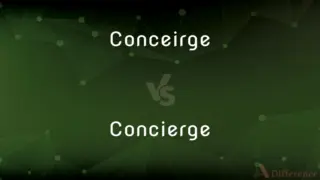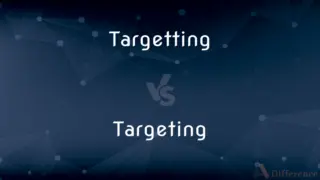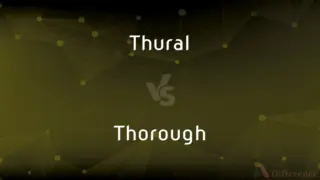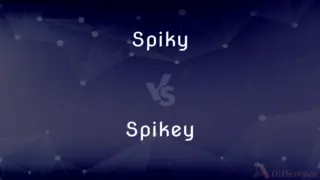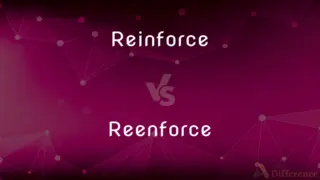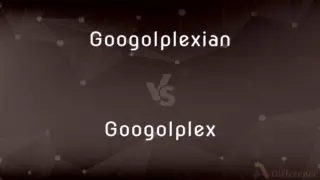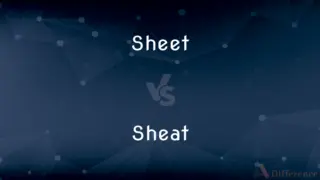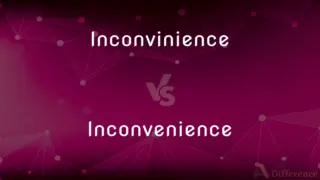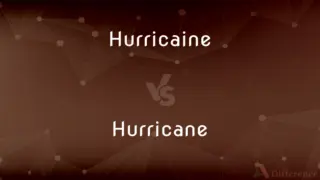Hystory vs. History — Which is Correct Spelling?
Edited by Maham Liaqat — By Urooj Arif — Updated on April 23, 2024
Hystory is the incorrect spelling of history, which is the study of past events.
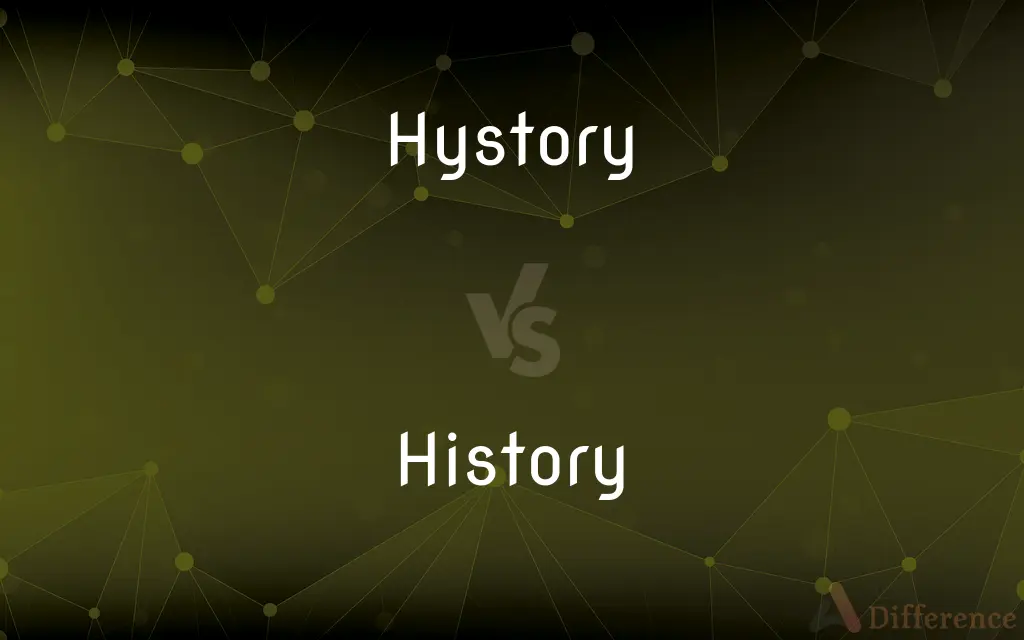
Table of Contents
Which is correct: Hystory or History
How to spell History?

Hystory
Incorrect Spelling

History
Correct Spelling
ADVERTISEMENT
Key Differences
The word "history" is related to "historical," not "hystorical."
Remember that "history" starts with "his," not "hys."
Recall that "story" is part of "history," emphasizing the 'i' and not 'y.'
How Do You Spell History Correctly?
Incorrect: The teacher discussed World War II's hystory.
Correct: The teacher discussed World War II's history.
Incorrect: My favorite subject in school is hystory.
Correct: My favorite subject in school is history.
ADVERTISEMENT
Incorrect: He was fascinated by Medieval European hystory.
Correct: He was fascinated by Medieval European history.
Incorrect: The hystory book was full of ancient tales.
Correct: The history book was full of ancient tales.
Incorrect: She wrote her thesis on the hystory of art.
Correct: She wrote her thesis on the history of art.
History Definitions
The discipline that records and analyzes past events.
She is pursuing a degree in history at the university.
The aggregate of past events or human affairs.
His knowledge of European history is impressive.
Events forming the subject matter of a historical account.
The documentary covered the history of jazz music in America.
History (from Greek ἱστορία, historia, meaning "inquiry; knowledge acquired by investigation") is the study of the past. Events before the invention of writing systems are considered prehistory.
A chronological record of events, as of the life or development of a people or institution, often including an explanation of or commentary on those events
A history of the Vikings.
A formal written account of related natural phenomena
A history of volcanoes.
A record of a patient's general medical background
Took the patient's history.
An established condition or pattern of behavior
An inmate with a history of mental illness and drug abuse.
The branch of knowledge that records and analyzes past events
"History has a long-range perspective" (Elizabeth Gurley Flynn).
The past events relating to a particular thing
The history of their rivalry is full of intrigue.
The aggregate of past events or human affairs
Basic tools used throughout history.
An interesting past
A house with history.
Something that belongs to the past
Their troubles are history now.
(Slang) One that is no longer worth consideration
Why should we worry about him? He's history!.
A drama based on historical events
The histories of Shakespeare.
The aggregate of past events.
History repeats itself if we don’t learn from its mistakes.
The branch of knowledge that studies the past; the assessment of notable events.
He teaches history at the university.
History will not look kindly on these tyrants.
He dreams of an invention that will make history.
The portion of the past that is known and recorded by this field of study, as opposed to all earlier and unknown times that preceded it (prehistory).
In all of human history and prehistory
In all recorded history
(countable) A set of events involving an entity.
What is your medical history?
The family's history includes events best forgotten.
A long and sordid history
(countable) A record or narrative description of past events.
I really enjoyed Shakespeare's tragedies more than his histories.
A short history of post-Columbian colonization
A list of past and continuing medical conditions of an individual or family.
A personal medical history is required for the insurance policy.
He has a history of cancer in his family.
This diagnosis is usually based solely on the history and physical examination, although laboratory tests are occasionally also obtained.
A record of previous user events, especially of visited web pages in a browser.
I visited a great site yesterday but forgot the URL. Luckily, I didn't clear my history.
(informal) Something that no longer exists or is no longer relevant.
I told him that if he doesn't get his act together, he's history.
(uncountable) Shared experience or interaction.
There is too much history between them for them to split up now.
He has had a lot of history with the police.
(obsolete) To narrate or record.
A learning or knowing by inquiry; the knowledge of facts and events, so obtained; hence, a formal statement of such information; a narrative; a description; a written record; as, the history of a patient's case; the history of a legislative bill.
A systematic, written account of events, particularly of those affecting a nation, institution, science, or art, and usually connected with a philosophical explanation of their causes; a true story, as distinguished from a romance; - distinguished also from annals, which relate simply the facts and events of each year, in strict chronological order; from biography, which is the record of an individual's life; and from memoir, which is history composed from personal experience, observation, and memory.
Histories are as perfect as the historian is wise, and is gifted with an eye and a soul.
For aught that I could ever read,Could ever hear by tale or history.
What histories of toil could I declare!
Justly Cæsar scorns the poet's lays;It is to history he trusts for praise.
No more yet of this;For 't is a chronicle of day by day,Not a relation for a breakfast.
Many glorious examples in the annals of our religion.
To narrate or record.
The aggregate of past events;
A critical time in the school's history
The continuum of events occurring in succession leading from the past to the present and even into the future;
All of human history
A record or narrative description of past events;
A history of France
He gave an inaccurate account of the plot to kill the president
The story of exposure to lead
The discipline that records and interprets past events involving human beings;
He teaches Medieval history
History takes the long view
All that is remembered of the past as preserved in writing; a body of knowledge;
The dawn of recorded history
From the beginning of history
The study of past events, particularly in human affairs.
We learned about the history of the Roman Empire in class today.
A record or narrative description of past events.
The museum displays the history of the Native American tribes.
History Meaning in a Sentence
The history of ancient civilizations is intriguing.
Learning history helps us understand how past societies were structured.
Many students find history to be a fascinating subject because it tells us about our past.
The history teacher explained the causes of the American Civil War.
She did a presentation on the history of the civil rights movement.
The library has a vast collection of books on world history.
Our history homework was to write about the Industrial Revolution.
Understanding history can prevent us from repeating past mistakes.
We visited a museum that displays the history of aviation.
The teacher asked the class about the history of the Olympic Games.
The history quiz tested our knowledge of ancient empires.
History lessons often include discussions about important historical figures.
He read a book about the history of science.
I enjoy reading about the history of different inventions.
Our project was about the history of cinema.
History exams often include essays on significant periods.
The film gave a brief history of the early settlers in America.
She won the history award for her excellent grades in the subject.
History books often include maps to illustrate territorial changes.
History teaches us about the development of different cultures.
History is not just about memorizing dates; it's about understanding events.
The history club meets every Wednesday afternoon.
She likes to read historical fiction, which is inspired by real history.
Studying history can lead to a better understanding of current events.
He explained the history of the local area to the visitors.
History Idioms & Phrases
Go down in history
To be remembered or recorded in history.
The president's decision will surely go down in history.
A history of
Having a background or record of something.
He has a history of volunteering for social causes.
On the right side of history
Engaging in actions deemed morally correct by future generations.
Advocating for civil rights puts one on the right side of history.
Oral history
The collection and study of historical information using recordings of interviews with people having personal knowledge of past events.
The project aimed to preserve the oral history of the indigenous communities.
Make history
To do something significant that enters the historical record.
The first moon landing made history in 1969.
History in the making
A current event that is significant enough to be remembered historically.
The peace treaty was history in the making.
History is written by the victors
The concept that the historical narrative often reflects the perspective of the winners.
The saying that history is written by the victors is evident in many war accounts.
History will judge
Future historians will decide the merit or demerit of present actions.
History will judge our environmental policies harshly, I fear.
History repeats itself
Events often recur in cycles.
They say that history repeats itself, which seems true when you study the economic cycles.
On the wrong side of history
Engaging in actions deemed morally wrong by future generations.
Those who opposed voting rights were on the wrong side of history.
History buffs
People who are very interested in and knowledgeable about history.
History buffs enjoy visiting museums and historical sites.
Rewrite history
To change the way past events are perceived.
The new documentary aims to rewrite history by presenting previously unknown facts.
Ancient history
Something that happened a long time ago and is no longer of any importance.
Their argument is ancient history now; they've moved past it.
Personal history
The background or past experiences of an individual.
The biography detailed his personal history from childhood to old age.
To be history
To be in the past; often used to suggest that something is no longer relevant or has been decisively ended.
After that mistake, his chances of promotion are history.
Living history
A reenactment or preservation of how people lived and worked in a past era.
The colonial fair is a living history exhibit of 18th-century life.
History teaches us
The idea that learning about past events can provide valuable lessons for the future.
History teaches us that diplomacy can often prevent conflict.
A blot on the history
A shameful event or period in the past.
The scandal was a blot on the history of the institution.
Common Curiosities
How do we divide history into syllables?
History is divided into syllables as his-to-ry.
What is the verb form of history?
History does not have a verb form; it is used only as a noun.
What is the pronunciation of history?
History is pronounced as /ˈhɪs.tə.ri/.
Why is it called history?
History is derived from the Ancient Greek word historía, meaning "inquiry" or "knowledge from inquiry."
How is history used in a sentence?
History is often used as a noun to refer to the study of past events or the record of these events.
What is another term for history?
Another term for history is "the past" or "historical study."
What is the singular form of history?
The singular form of history is "history."
How many syllables are in history?
History has three syllables.
What is the root word of history?
The root word of history is the Greek historía, meaning "inquiry."
What is a stressed syllable in history?
The first syllable, "his," is the stressed syllable in history.
What part of speech is history?
History is a noun.
What is the plural form of history?
The plural form of history is "histories."
Is history a collective noun?
No, history is not typically considered a collective noun.
Is history a noun or adjective?
History is a noun.
Is history an abstract noun?
Yes, history is an abstract noun.
Is history an adverb?
No, history is not an adverb.
Is history a vowel or consonant?
The word "history" starts with a consonant.
Is history a countable noun?
Yes, history is a countable noun (e.g., histories).
Is the history term a metaphor?
The term "history" can be used metaphorically in some contexts.
Is the word history imperative?
No, history is not used in the imperative mood as it is a noun.
Is the word “history” a Direct object or an Indirect object?
History can be used as a direct object in a sentence.
Which determiner is used with history?
Determiners such as "the," "a," and "some" can be used with history.
Which vowel is used before history?
Typically, "a" or "the" is used before history, depending on the context.
What is the opposite of history?
There isn't a direct opposite of history, but "future" could be considered conceptually opposite.
Is history a negative or positive word?
History is neutral; it is neither inherently negative nor positive.
Is the word history Gerund?
No, history is not a gerund; it is a noun.
Which preposition is used with history?
Common prepositions used with history include "in" and "of."
Which conjunction is used with history?
Conjunctions such as "and" and "or" can be used with history in compound structures.
Which article is used with history?
The definite article "the" is often used with history (e.g., "the history of Rome").
Share Your Discovery
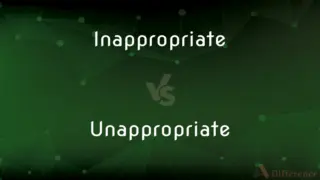
Previous Comparison
Inappropriate vs. Unappropriate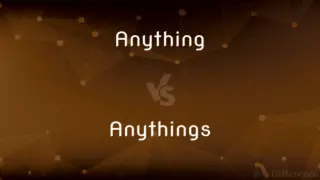
Next Comparison
Anything vs. AnythingsAuthor Spotlight
Written by
Urooj ArifUrooj is a skilled content writer at Ask Difference, known for her exceptional ability to simplify complex topics into engaging and informative content. With a passion for research and a flair for clear, concise writing, she consistently delivers articles that resonate with our diverse audience.
Edited by
Maham Liaqat

